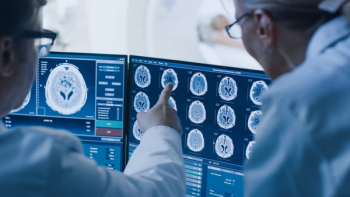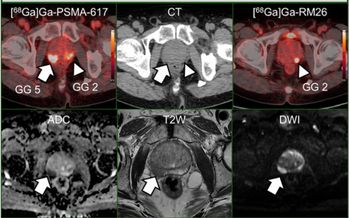
GE Healthcare Secures FDA Clearance for Faster, More Consistent Cardiovascular Ultrasound
New system incorporates artificial intelligence features intended to truncate exam time and create more consistently repeatable exams.
The U.S. Food & Drug Administration, on Oct. 12, awarded GE Healthcare 510(k) clearance for the Ultra Edition package for its Vivid cardiovascular ultrasound system.
Ultra Edition features on this new system, company officials said, can deliver repeatable exam assessments, helping providers identify whether patients have improved or whether their disease is progressing. Vivid Ultra Edition uses the AI Auto Measure-2D feature to increase scanning process efficiencies for reduced exam times with up to 80 percent fewer clicks and 99 percent accuracy by using the View Recognition feature. The AI Auto Measure-2D feature also allows for less inter-operator variability. This advance is critical, they said, because currently capturing heart function assessments is tedious and time-consuming.
According to a company statement, the Vivid Ultra Edition, which is driven by cSound, GE’s unique software-based ultrasound beam-forming platform, includes three neural network-based algorithms driven by artificial intelligence (AI) that can more quickly produce repeatable measurements in 2D echo imaging:
- AI Auto Measure-Spectrum Recognition: By semi-automatically detecting the appropriate spectral Doppler imaging measurement, this feature allows the system to accelerate the path from scanning to measurement while maintaining 98-percent accuracy and 100-percent reproducibility.
- AI Auto Measure-2D: This feature detects relevant image points that can reveal key left ventricle measurements. The 100-percent reproducibility performance is comparable to human users.
- AI-based View Recognition: With 99-percent accuracy and 100-percent reproducibility, this feature can automatically detect which standard 2D scan plan has been acquired and can store the label in the imaging file. GE’s auto AFI package uses this data to automatically select views that can be used for strain analysis, streamlining workflow, and increasing efficiency.
Using this system has already resulted in time-savings for one system user, the company said.
“We use AI Auto Measure-2D, AI Auto Measure-Spectrum Recognition, and Auto AFI together with Auto EF. We also use Scan Assist Pro, 4D biplane and 4D triplane,” said Rebecca Perry, Ph.D., cardiac sonography program stream coordinator at the University of South Australia. “All of this in combination has saved us 7-to-10 minutes per scan, which is fantastic, so we really do have more time to spend with the patient.”
Additionally, said Dagfinn Saetre, general manager of cardiovascular ultrasound at GE, the Vivid Ultra Edition also offers new image quality, advanced visualization, and navigation capabilities:
- HD Color: To enhance 3D perception, this feature presents anatomy and jet via shadowing, reflections, and transparency.
- Flexilight: Providers can capture photorealistic images that improve how they see moving structures, as well as their depth perception of tissues.
- 4D TTE Pediatric probe (6VDc): This product characteristic offers high-quality 2D and 4D imaging for pediatric patients ranging from newborns to teen-agers.
“With the Vivid Ultra Editions, we offer AI capabilities that hlep address healthcare providers’ to key challenges in echo exams – how time consuming the exam is and the degree of variability that exists in the quantitative results,” Saetre said. “This package supports our vision of where we need to go with cardiovascular ultrasound: tools to support less variability and improved productivity.”
Newsletter
Stay at the forefront of radiology with the Diagnostic Imaging newsletter, delivering the latest news, clinical insights, and imaging advancements for today’s radiologists.













